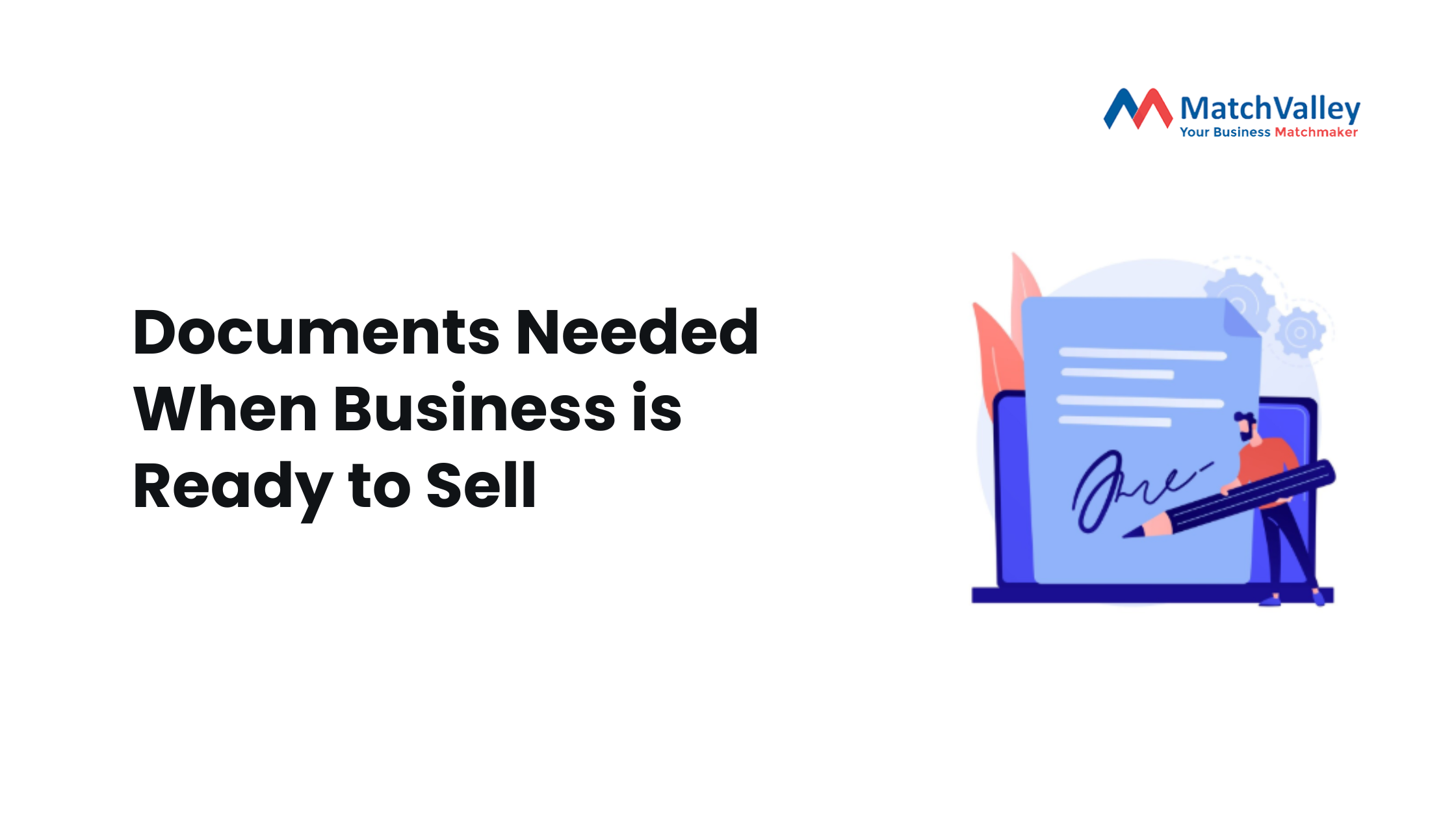Documents Needed When Business is Ready to Sell
Selling a business is often one of the most important financial and professional decisions an entrepreneur can make. Whether you’re retiring, moving into a new venture, or simply cashing out on years of hard work, being prepared with the right documentation will not only speed up the process but also increase buyer confidence and maximize value.
When a business is ready to sell, buyers, brokers, and financial institutions expect transparency, accuracy, and proof of performance. The documents you present will determine how smooth the transaction goes and how attractive your business looks to prospective buyers. Below, we’ll explore the essential documents every seller should prepare.
- Financial Statements and Tax Returns
One of the first things a buyer will ask for is the financial health of your business. Transparent records build trust and give a clear picture of profitability and potential.
- Profit & Loss Statements (last 3–5 years) – Shows revenue, expenses, and net income trends.
- Balance Sheets – Provides a snapshot of assets, liabilities, and owner’s equity.
- Cash Flow Statements – Highlights liquidity and how efficiently the business generates cash.
- Tax Returns (last 3–5 years) – Validates reported earnings and ensures compliance with government regulations.
Having these documents audited or reviewed by a certified accountant adds extra credibility.

- Legal Documents and Ownership Records
Before selling, ensure all legal paperwork is accurate and updated. Buyers want to know who owns what and whether there are any risks tied to the business.
- Business Registration & Incorporation Documents – Certificates of incorporation, partnership agreements, or sole proprietorship licenses.
- Shareholder Agreements – Clarifies ownership percentages and decision-making authority.
- Intellectual Property Records – Trademarks, patents, copyrights, and trade secrets that add value.
- Contracts & Leases – Active client contracts, vendor agreements, and rental/lease obligations.
- Pending or Past Litigation Records – Disclosing disputes upfront builds trust and avoids surprises.
- Operational Documents
Beyond finances and legal compliance, buyers are equally interested in the operational structure of your business. Clear documentation helps them understand day-to-day functioning and future scalability.
- Employee Records – Roles, contracts, salaries, and benefits packages.
- Organizational Chart – Highlights management hierarchy and delegation of responsibilities.
- Standard Operating Procedures (SOPs) – Written guides that ensure continuity in processes.
- Supplier & Vendor Agreements – Key relationships that support business operations.
- Inventory Records – Detailed list of raw materials, finished goods, or stock on hand.
These documents show that your business is not overly dependent on the owner and can operate independently.

- Customer and Market Information
A strong customer base and proven market positioning make a business more valuable. Buyers want assurance that revenue streams are sustainable.
- Customer Database – Contact details, purchase history, and customer lifetime value.
- Sales & Marketing Reports – Campaign performance, conversion rates, and sales funnel metrics.
- Market Research Reports – Evidence of demand, competition, and growth potential.
- Client Contracts or Recurring Revenue Agreements – Proof of predictable income.
If possible, anonymize sensitive customer data while still showing patterns of loyalty and engagement.
- Real Estate and Asset Documentation
If your business owns or leases property, or if physical assets play a major role, documentation is key.
- Property Deeds or Lease Agreements – Proof of ownership or long-term occupancy.
- Equipment Lists – Detailed breakdown of machinery, vehicles, or IT infrastructure.
- Depreciation Schedules – Helps buyers understand the current value of assets.
- Insurance Policies – Coverage details for assets, liabilities, and employees.
These documents help the buyer assess the tangible value alongside revenue streams.
- Compliance and Regulatory Filings
Depending on the industry, regulatory compliance can be a major factor in the sale. Non-compliance can scare away serious buyers.
- Licenses & Permits – Industry-specific approvals (health permits, export licenses, etc.).
- Environmental & Safety Compliance Records – Especially important in manufacturing, food, or healthcare businesses.
- Annual Reports Filed with Government Authorities – Proof of compliance with statutory requirements.
Being proactive in this area avoids last-minute legal or financial hurdles.
- Seller’s Disclosure and Transition Plan
Finally, transparency and a clear transition plan make the deal more attractive. Buyers want confidence that operations will continue seamlessly.
- Seller’s Disclosure Statement – Reveals debts, obligations, or challenges.
- Transition/Exit Plan – Defines how knowledge transfer, training, and handover will be managed.
- Non-Compete Agreement (if required) – Reassures the buyer that the seller won’t compete immediately after the sale.
Final Thoughts
Selling a business isn’t just about finding a buyer—it’s about proving value, minimizing risk, and ensuring continuity. Having the right documents ready makes your business more appealing and helps justify the asking price.
Think of these documents as your business’s story told in facts and figures. They build trust, reduce negotiation hurdles, and accelerate closing. The earlier you start organizing them, the more leverage you’ll have during the sale.
If your business is ready to sell, assembling these documents will make the process smoother, attract serious buyers, and ensure you exit on the best possible terms.




